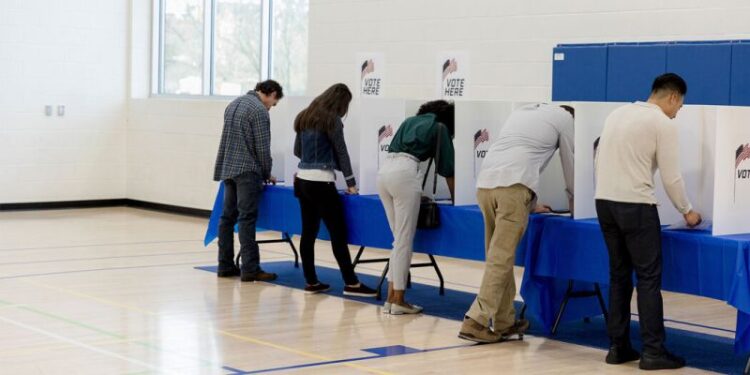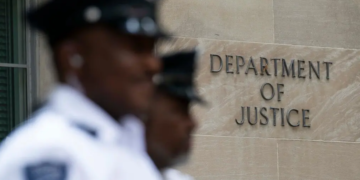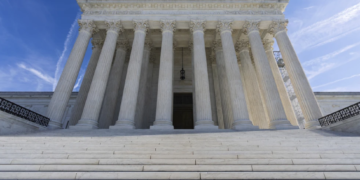Img source: Linkedin.com
May 17, 2024 Story by: Editor
As the 2024 legislative sessions wrap up in about half the states and with the general election looming in six months, new voting laws for 2024 are reflecting trends seen since 2021. Some states are imposing new voting restrictions, while others are making it easier to vote.
From January 1 to May 3, 2024:
- Six states have enacted seven restrictive voting laws. Alabama and Idaho have introduced significant new restrictions, among others in Arizona, Indiana, and Tennessee. These laws will affect the 2024 general election.
- South Dakota has passed an election interference law effective July 1.
- Eleven states have enacted 14 expansive voting laws, with Kentucky notably expanding absentee voting access. Most of these laws will be in effect for the upcoming general election. Source: Brennan Center for Justice
A notable trend is states imposing restrictions on absentee voting assistance, continuing a pattern of limiting mail voting access since its surge in popularity during the 2020 pandemic. On the other hand, many states are also enhancing the voting process, especially focusing on mail voting.
Emerging this year is legislation aimed at regulating deepfakes and AI-generated content in elections, addressing growing concerns about disinformation. AI technology can now produce realistic imitations, posing a significant risk of creating fraudulent election materials.
Additionally, some lawmakers are introducing bills concerning noncitizen voting. Although noncitizen voting is illegal under federal and state law (except in some local elections), these bills could disenfranchise eligible voters and confuse new citizens. There’s no substantial evidence of noncitizen voting occurring.
New Laws for the 2024 Election
As the general election approaches, many states are adding voting restrictions. In 21 states, voters will encounter new restrictions that were not present in previous presidential or midterm elections. Conversely, 28 states have relaxed some restrictions compared to the last presidential election.
Since 2020, states that enacted voting restrictions have also passed laws that could lead to election interference. Thirteen states will have new election interference laws this year, with six states having at least one interference law that wasn’t in place for the 2022 midterms.
New Laws Post-Supreme Court Decision on the Voting Rights Act
Since the Supreme Court’s 2013 decision in Shelby County v. Holder, at least 31 states have passed 103 restrictive voting laws.
Restrictive Legislation
Between January 1 and May 3, Alabama, Idaho, and Indiana introduced significant voting restrictions, with three other states passing less impactful restrictive laws. Overall, lawmakers in 40 states considered at least 291 restrictive bills for 2024.
Alabama and Idaho’s new laws criminalize certain forms of absentee voting assistance, disproportionately affecting elderly voters, those with disabilities, and those with limited transportation. Alabama’s law penalizes individuals who submit others’ mail ballot applications or distribute pre-filled absentee ballot applications, while Idaho’s law restricts anyone other than certain officials and caregivers from handling another’s mail ballot. Voting rights advocates are challenging Alabama’s law in court.
Indiana’s new law requires election officials to verify voter registration against Bureau of Motor Vehicles records to identify noncitizens, risking wrongful removal of naturalized citizens from voter rolls. Tennessee introduced two laws: one shortens the absentee ballot request deadline, and another imposes strict regulations on voter registration organizations.
Arizona’s law reduces the period for correcting signature issues on mail ballots from five business days to five calendar days. West Virginia now requires county clerks to cancel the registrations of voters obtaining out-of-state driver’s licenses, impacting students and military members.
Governors in Wisconsin and Arizona vetoed additional restrictive voting measures. Wisconsin’s vetoed bill would have discarded ballots with minor errors, while Arizona’s vetoed bill aimed to restrict student voter registrations.
Election Interference Legislation
Only South Dakota has enacted an election interference law between January 1 and May 3. This law penalizes election workers who don’t allow poll watchers sufficient observation of voting activity, which could deter people from serving as poll workers and increase the risk of disruptive behavior at polling places.
Expansive Legislation
At least 11 states have enacted 14 laws making voting easier. Virginia, Washington, and Oregon each passed two new expansive laws. Virginia allows absentee voting for eligible voters in jail and removes the requirement for physical disabilities to receive assistance outside polling places.
Washington requires county officials to update voter registration for those moving within the state and assist absentee voters in correcting signature issues. Oregon mandates translating voting materials into additional languages.
Kentucky expanded absentee voting provisions, and Nebraska now restores voting rights immediately upon completing felony sentences. Tennessee, Indiana, and Mississippi introduced measures to assist voters with disabilities, address absentee ballot issues, and relax voter ID requirements.
Other Noteworthy Developments
- Efforts to protect elections from deepfakes: At least 39 states introduced bills to regulate AI-generated content in elections, with nine states enacting laws requiring disclaimers on synthetic media.
- Lawmakers targeting noncitizen voting: Despite noncitizen voting being extremely rare and already illegal, 24 states introduced bills to reinforce existing laws, potentially causing confusion and fear among new citizens. Some restrictive measures could disenfranchise eligible voters due to documentary proof of citizenship requirements.
The landscape of voting laws continues to evolve, with states balancing between restricting and expanding voter access ahead of the 2024 general election.
















